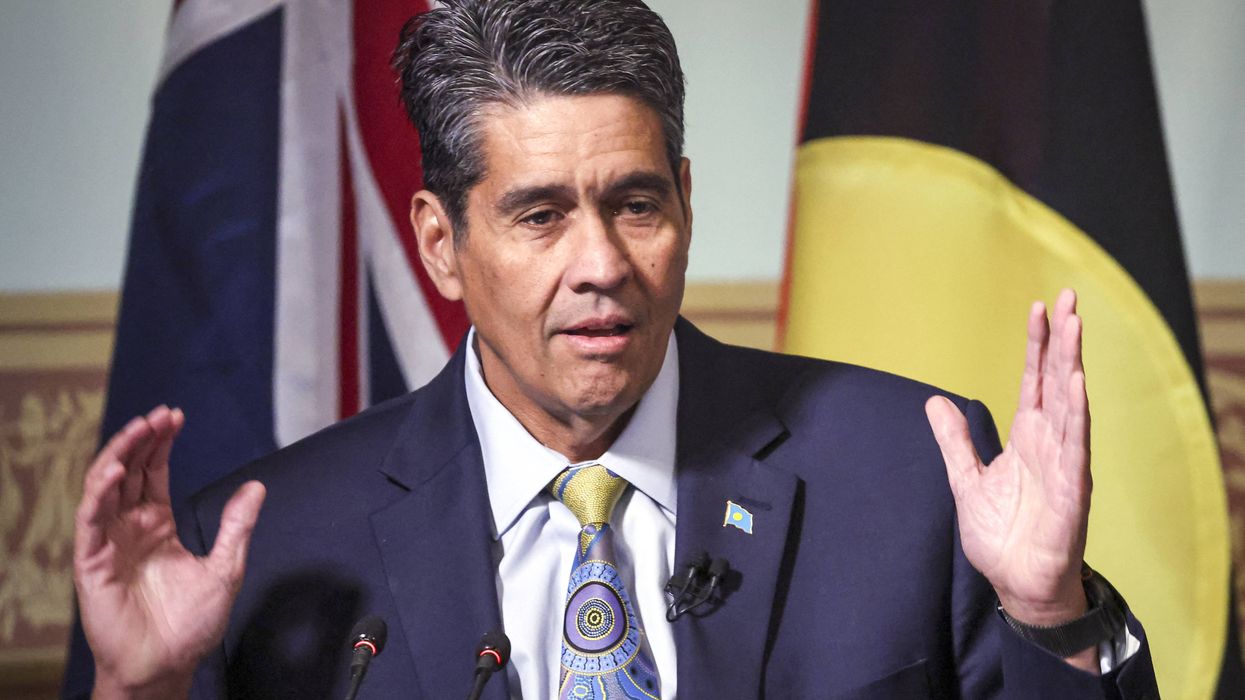November, 02 2012, 11:30am EDT

For Immediate Release
Contact:
Email:,info(at)fwwatch(dot)org,Seth Gladstone -,sgladstone@fwwatch.org
Rising Concentration in Milk Processing, Dairy Industry Undermines New York's Rural Economies
Food & Water Watch Report Highlights How Major Dairy Players Put Farmers at Disadvantage
WASHINGTON
Today, Food & Water Watch released an analysis that found that New York dairy farmers - and their rural neighbors - were harmed as consolidation in the milk processing and handling industry increased. Between 1982 and 2007, New York lost 64.6 percent of its dairy farms in 24 rural, upstate counties as the number of milk processing companies and milk handlers grew fewer in number but larger in size.
"Medium-sized dairy farms used to form the foundation of rural economies in upstate New York," said Food & Water Watch Executive Director Wenonah Hauter. "But the effective coordination between the nation's biggest milk processor Dean Foods and the biggest milk handler Dairy Farmers of America has threatened the economic vitality of New York's rural communities."
Food & Water Watch's report, The Economic Cost of Food Monopolies, found that the number of milk processing plants in New York fell by nearly half from 61 in 1992 to 37 in 2007 and other large dairy product manufacturing plants closed over the past decade. The declining number of plants made dairy farmers more dependent on fewer milk processing companies and fewer, larger milk handlers. A class-action suit brought by dairy farmers in New York and other northeastern states charged that the biggest milk processor and biggest milk handling cooperative worked in concert to effectively lower the prices farmers receive.
"Independent dairy farmers in New York cannot get fair prices for their milk when only a few firms buy, handle and process milk," said Waterville dairy farmer Gretchen Maine. "The corporate style co-ops like DFA and the big processing companies like Dean have bought up the marketplace and now dairy farmers just have to accept whatever low prices they offer us for our milk while paying higher prices for our inputs."
As dairy farms disappeared, the remaining farms became larger to survive and secure sales with the big handlers and processors. Food & Water Watch compared two New York dairy counties with different trends in their dairy farms. Historically New York's dairy leader, St. Lawrence County lost 77 percent of its dairy farms between 1982 and 2007. Despite this drastic decline, it remained tied for the county with the most dairy farms in the state in 2007, which is indicative to the overall drop in dairy farms across New York. On the other hand, Yates County started with very few dairy farms, but small-scale Mennonite dairy farmers migrated to the county over the past three decades. Yates was the only county to have an increase in the number of dairy farms and had stronger economic performance than St. Lawrence County, despite St. Lawrence's status as a dairy leader.
"These two counties tell a typical story: more small- and medium-sized farms contribute more to the economy than fewer larger farms," noted Hauter. "Household earnings rose in Yates County but fell in St. Lawrence; the number of small businesses increased 30 percent in Yates County compared to only a 6 percent increase in St. Lawrence County."
The Yates County experience demonstrates that more medium-sized farms can provide more economic benefit for rural communities, but Mennonite farming practices may provide little guidance for other independent producers. Mennonite farmers use fewer inputs and expensive equipment, rely on plenty of low-cost family labor and typically have little farm debt. These are pre-conditions that most farmers and communities will be unable to replicate, and it is striking that the only county in New York to see growth in its number of dairy farms had these unusual characteristics.
This study of New York dairy farms was part of a multi-sector examination of the cost of economic consolidation in the food and agriculture system. Other sectors and regions included Iowa hog production; poultry production on Maryland's Eastern Shore; organic soymilk production and organic soybean farming; and California's processed fruit and vegetable industry.
"The consolidation of the food and farm sector is sucking the economic vitality out of rural America and shipping it off to Wall Street," said Hauter. "These findings shine a much-needed light on the negative economic impact that farm and agribusiness monopolies have on farmers, consumers and rural communities."
A copy of the report, The Economic Cost of Food Monopolies, can be downloaded here: https://www.foodandwaterwatch.org/reports/the-economic-cost-of-food-mon...
Food & Water Watch mobilizes regular people to build political power to move bold and uncompromised solutions to the most pressing food, water, and climate problems of our time. We work to protect people's health, communities, and democracy from the growing destructive power of the most powerful economic interests.
(202) 683-2500LATEST NEWS
'Unhinged' Trump Wishes 'Merry Christmas to All, Including the Radical Left Scum'
"Nothing more Christian than to be a hateful wretched fuck on Jesus’ birthday," quipped one critic.
Dec 25, 2025
In a message called typically on-brand by observers, US President Donald Trump wished "Merry Christmas to all"—including his political opponents, whom he described in decidedly unchristlike language.
"Merry Christmas to all, including the Radical Left Scum that is doing everything possible to destroy our Country, but are failing badly," Trump said Christmas Eve on his Truth Social network.
"We no longer have Open Borders, Men in Women’s Sports, Transgender for Everyone, or Weak Law Enforcement," the president added. "What we do have is a Record Stock Market and 401K’s, Lowest Crime numbers in decades, No Inflation, and yesterday, a 4.3 GDP, two points better than expected. Tariffs have given us Trillions of Dollars in Growth and Prosperity, and the strongest National Security we have ever had. We are respected again, perhaps like never before. God Bless America!!!"
While nothing new—Trump has used past Christmas messages to tell people he doesn't like to "go to hell" and "rot in hell"—observers, including some MAGA supporters, were still left shaking their heads.
"Radical Left Scum" 😂🤣😂🤣😂🤣Christmas greetings from a liar, traitor, pedophile, and overall shitstain upon society.
[image or embed]
— Bill Madden (@maddenifico.bsky.social) December 24, 2025 at 9:00 PM
"Nothing more Christian than to be a hateful wretched fuck on Jesus’ birthday!" liberal political commentator Dean Withers said on X.
Another popular X account posted: "A sitting president of the United States using Christmas Day to spew venom at fellow Americans he calls 'Radical Left Scum' isn’t just unpresidential—it’s unhinged, un-Christian, and utterly beneath the office."
"This is the behavior of a bitter, small man who can’t even pretend to unify for one holy day," she added. "Shameful. Disgraceful. Pathetic."
Keep ReadingShow Less
Palau Signs Controversial $7.5 Million Deal to Take 75 Trump Deportees
"What if we spent the $100,000 per person in America setting them up with housing assistance, healthcare, education, etc?" asked one critic.
Dec 25, 2025
Palau said Wednesday that it has agreed to take in up to 75 people deported from the United States during President Donald Trump's purge of unauthorized immigrants in exchange for millions of dollars in financial assistance—a move that has sparked considerable opposition among the Pacific archipelago nation's roughly 18,000 inhabitants.
The office of Palauan President Surangel Whipps Jr. announced a memorandum of understanding with the United States under which the country will receive $7.5 million in assistance in exchange for taking in 75 third-country deportees who cannot be repatriated to their countries of origin.
Earlier this week, US State Department Principal Deputy Spokesperson Tommy Pigott said the people who will be sent to Palau have “no known criminal histories," as is the case with the vast majority of unauthorized immigrants in the United States, who have committed no crime other than the mere misdemeanor of entering the country illegally.
However, Palauans have voiced concerns over US Secretary of State Marco Rubio's remarks during a Cabinet meeting earlier this year in which he said that, “We want to send some of the most despicable human beings—perverts, pedophiles, and child rapists—to your countries as a favor to us."
Whipps said Wednesday that the relocation plan involves “people seeking safety and stability."
“These are not criminals,” the president said during earlier debate on the proposal. “Their only offense was entering the United States illegally and working without proper permits.”
However, Palau's Congress and its influential Council of Chiefs have twice rejected the transfers.
Piggot's statement "highlighted US commitments to partner with Palau on strengthening the country’s healthcare infrastructure, increasing Palau’s capacity to combat transnational crime and drug trafficking, and bolstering Palau’s civil service pension system."
Palau, which was administered by the US from 1947-94 and is now associated with the United States under the 1994 Compact of Free Association, which guaranteed the country nearly $900 million economic aid over 20 years in exchange for exclusive US military access.
The country's foreign policy often tracks closely to that of the US. For example, Palau is sometimes among the handful of usually similarly small nations that vote along with the United States and Israel against United Nations resolutions condemning Israeli crimes or affirming Palestinian rights.
Other developing nations including Eswatini, Rwanda, South Sudan, and Uganda have also agreed to take in US deportees or are considering doing so.
Reactions to the US-Palau agreement drew criticism on social media, where one X user called the deal a "bribe" and another popular Bluesky account asked, "What if we spent the $100,000 per person in America setting them up with housing assistance, healthcare, education, etc?"
Keep ReadingShow Less
Trump 'Choosing From the War Crimes Menu' With 'Quarantine' on Venezuela Oil Exports
"Economic strangulation is warfare and civilians always pay the price," lamented CodePink.
Dec 25, 2025
President Donald Trump has ordered US military forces to further escalate their aggression against Venezuela by enforcing a "quarantine" on the South American nation's oil—by far its main export—in what one peace group called an attempted act of "economic strangulation."
"While military options still exist, the focus is to first use economic pressure by enforcing sanctions to reach the outcome the White House is looking [for]," a US official, who spoke on condition of anonymity, told Reuters.
The move follows the deployment of an armada of US warships and thousands of troops to the region, threats to invade Venezuela, oil tanker seizures off the Venezuelan coast, Trump's authorization of covert CIA action against the socialist government of Venezuelan President Nicolás Maduro, and airstrikes against boats allegedly running drugs in the Caribbean Sea and Pacific Ocean that have killed more than 100 people in what critics say are murders and likely war crimes.
This, atop existing economic sanctions that experts say have killed tens of thousands of Venezuelans since they were first imposed during the first Trump administration in 2017.
"The efforts so far have put tremendous pressure on Maduro, and the belief is that by late January, Venezuela will be facing an economic calamity unless it agrees to make significant concessions to the US," the official told Reuters.
The official's use of the word "quarantine" evoked the 1962 Cuban Missile Crisis, an existential standoff that occurred after the John F. Kennedy administration imposed a naval blockade around Cuba to prevent Soviet nuclear missiles from being deployed on the island, even as the US was surrounding the Soviet Union with nuclear weapons.
"This is an illegal blockade," the women-led peace group CodePink said in response to the Reuters report. "Calling it a 'quarantine' doesn’t change the reality. The US regime is using hunger as a weapon of war to force regime change in Venezuela. Economic strangulation is warfare and civilians always pay the price. The US is a regime of terror."
Critics have also compared Trump's aggression to the George W. Bush administration's buildup to the invasion and occupation of Iraq, initially referred to as Operation Iraqi Liberation (OIL). But unlike Bush, Trump—who derided Bush for not seizing Iraq's petroleum resources as spoils of war—has openly acknowledged his desire to take Venezuela's oil.
"Maybe we will sell it, maybe we will keep it,” he Trump said on Monday. “Maybe we’ll use it in the strategic reserves. We’re keeping the ships also.”
On Wednesday, a panel of United Nations experts said that the US blockade and boat strikes constitute "illegal armed aggression" against Venezuela.
Multiple efforts by US lawmakers—mostly Democrats, but also a handful of anti-war Republicans—to pass a war powers resolution blocking the Trump administration from bombing boats or attacking Venezuela have failed.
The blockade and vessel seizures have paralyzed Venezuela's oil exports. Ports are clogged with full tankers whose operators are fearful of entering international waters. Venezuela-bound tankers have also turned back for fear of seizure. Although Venezuelan military vessels are accompanying tankers, the escorts stop once the ships reach international waters.
According to the New York Times, Venezuela is considering putting armed troops aboard tankers bound for China, which, along with Russia, has pledged its support—but little more—for Caracas.
Keep ReadingShow Less
Most Popular


